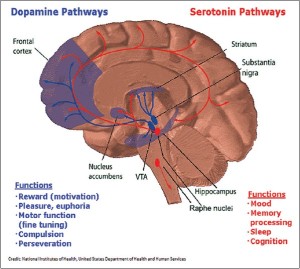 Receiving sound advice from a wise soul is invaluable. Who better than a person of experience, who has faced certain turmoil, and has lived through elements of life for which we yearn, to impart on us all that they have learned along the way. Many of us will even pay good money to sit at the table of an old sage to absorb his or her wisdom. But in the end, does it really matter?
Receiving sound advice from a wise soul is invaluable. Who better than a person of experience, who has faced certain turmoil, and has lived through elements of life for which we yearn, to impart on us all that they have learned along the way. Many of us will even pay good money to sit at the table of an old sage to absorb his or her wisdom. But in the end, does it really matter?
Even when in earnest we listen thoughtfully to those we hold in the highest esteem, we never really come to understand a thing until we experience it ourselves. Wisdom imparted makes us reflect and ponder, and it may even have us believing that we are better off for having heard it, but without the personal experience what can we truly know?
Try describing the taste of an apple without saying it tastes like apple. How could you explain it to a toddler other than handing her a slice? And the color red to a person with protanopia – a form of color blindness where the person’s red cones are damaged and thus they see black instead of red – how would you describe it? What about being in love? Try explaining it to a toddler and you will find you can only do so in the most trivial manner – the essence of what you feel can really only be effectively expressed to another who has experienced it as well.
Similarly, nobody can convey to you what it feels like to play the piano…you just have to play one to understand. A wealthy person cannot tell you what it feels like to be rich; he or she can only point you in the direction of the mind set you must have and the actions you must take to increase your chances of amassing great wealth. It will be up to you to actually do what it takes in order to achieve and experience it in totality. And this is true of becoming an athletic champion or a great artist as well. No one can teach you. They can coach you and guide you, but ultimately, you must learn by doing.
This is most true then when it comes to spiritual wisdom. You can spend time with a guru, but the guru can never teach you enlightenment; she can only show you the way to ready yourself and the direction you must walk to get there. The Buddha would say, “Ehipassiko,” or “Go see for yourself.” Take nothing on authority. Seek. Find. And only then will you Know Truth.
 Why is this? A guru cannot make you into what you already are. All he can do is show you how he himself arrived at his Self-realization. The guru simply encourages you to come along to where he is. Can he tell you what he sees, what he experiences? To some degree he can show you, he can share with you energetically, but words can never fully describe what he experiences. For this you must seek and find for yourself. Ehipassiko.
Why is this? A guru cannot make you into what you already are. All he can do is show you how he himself arrived at his Self-realization. The guru simply encourages you to come along to where he is. Can he tell you what he sees, what he experiences? To some degree he can show you, he can share with you energetically, but words can never fully describe what he experiences. For this you must seek and find for yourself. Ehipassiko.
When the seeker comes to understand that the real guru is within, then there is no longer a need for an outer guru. When the student is ready, the teacher will appear. And when the student becomes aware that the teacher is, and has always been, the Self, then all external manifestations of the guru merge into one within the seeker/student. All the books one has read, all the instructors one has put trust into, and all the wisdom one has earned on his or her path of spiritual seeking become part of the realization that all was just a remembering of what the Self has always known.
It has been said that spiritual practice is helping to ripen the fruit of the mind and prepare it for awakening. My advice would be to practice the methodical self-awareness of mindfulness, train the mind to attune to the perfect balance of non-duality of the Self, and dedicate time every day to enter into states of pure being and silence to experience the true reality of your existence. This may sound wildly unreachable to one who has not investigated the practices I am suggesting. But I assure you the actions are simple. Contact me if you would love to learn the simplicity of attuning to your Self and bearing the fruits of your labors. If you want to live mentally well-balanced, creatively, and with infinite riches in any area of life which you value, then listen to me and follow my guidance. I cannot move beyond these words and show you exactly what I mean; you will have to do that for yourself. But if you take the time to do as I advise, you will find that eventually you will come to see what I am suggesting – a new dimension of reality which is yours for the taking. But like the Buddha said, “Ehipassiko” – you must go see for yourself.
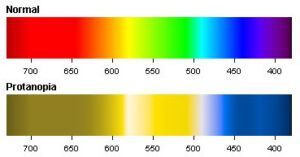




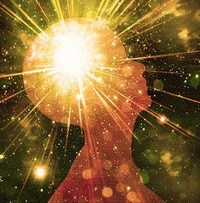




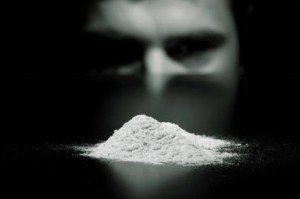
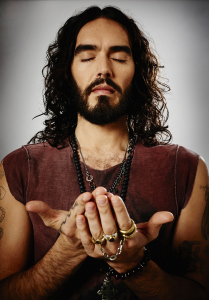 The quest to “find” the Self can be carried out by a number of paths. One such path is meditation.
The quest to “find” the Self can be carried out by a number of paths. One such path is meditation. 